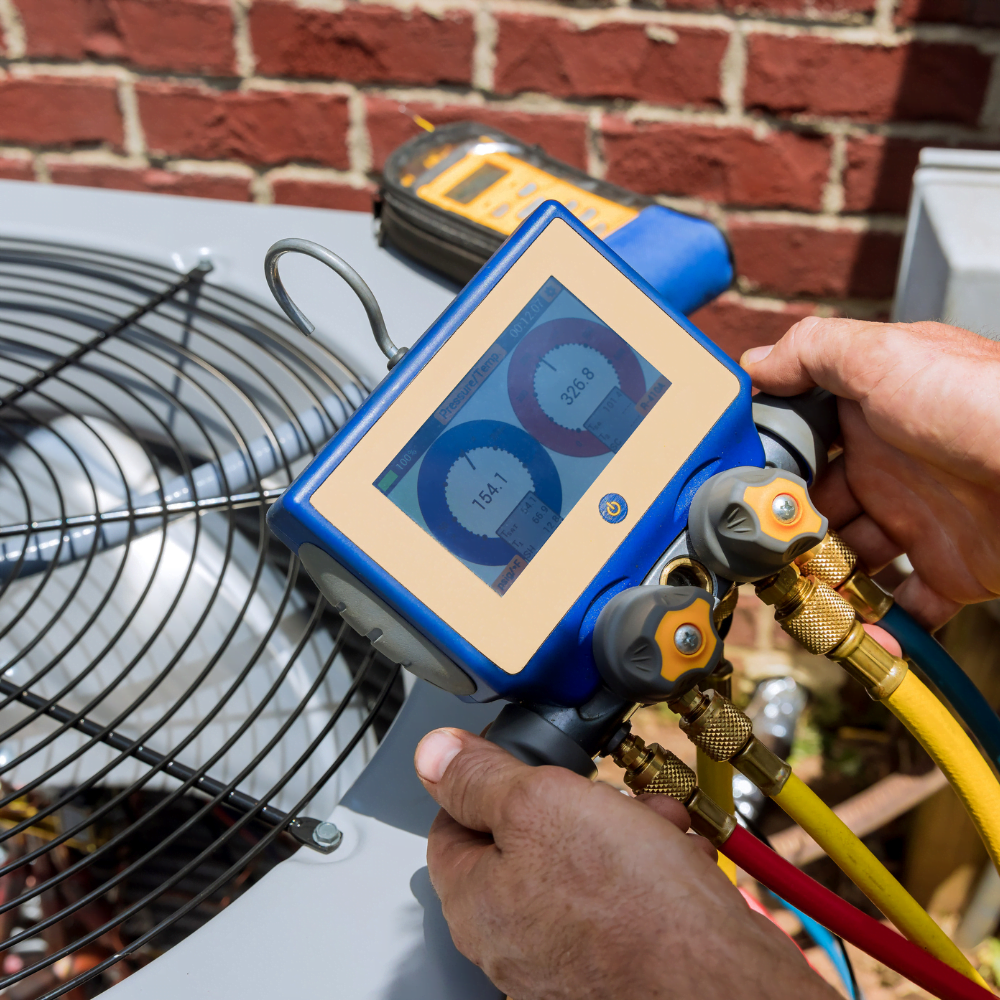What Does HVAC Maintenance Include? Eco-Friendly Air Conditioning and Heating
Introduction to HVAC Maintenance
Proper maintenance of your HVAC (Heating, Ventilation, and Air Conditioning) system is essential to ensure its optimal performance, energy efficiency, and longevity. Regular maintenance not only helps in reducing energy consumption and utility bills but also contributes to a more eco-friendly approach to air conditioning and heating. In this blog post, we will discuss what HVAC maintenance includes and how it can be done in an eco-friendly manner.Regular Inspections and Cleanings
One of the primary aspects of HVAC maintenance is regular inspections and cleanings. This involves checking the various components of the system, such as the air filters, coils, and ducts, for any signs of damage or dirt buildup. Dirty filters and coils can restrict airflow and reduce the system’s efficiency, leading to higher energy consumption. Cleaning or replacing these components as needed ensures proper airflow and improves energy efficiency.Tuning and Calibration
HVAC systems often require tuning and calibration to maintain their optimal performance. This includes checking and adjusting the thermostat settings, ensuring accurate temperature control. Additionally, the system’s motors, fans, and belts may need lubrication or adjustment to operate smoothly and quietly. By keeping these components well-maintained, you can prevent unnecessary strain on the system, reducing energy consumption and extending its lifespan.Refrigerant Levels and Leak Detection
For air conditioning systems, maintaining the correct refrigerant levels is crucial for efficient cooling. HVAC maintenance includes checking the refrigerant levels and detecting any leaks. Low refrigerant levels or leaks can lead to reduced cooling capacity and increased energy consumption. Fixing any leaks and adding the right amount of refrigerant not only improves energy efficiency but also prevents potential environmental damage caused by refrigerant leaks. Ductwork Inspection and Sealing The ductwork plays a vital role in distributing conditioned air throughout your home or office. Over time, ducts can develop leaks or become disconnected, resulting in air loss and reduced efficiency. HVAC maintenance includes inspecting the ductwork for any leaks, cracks, or loose connections and sealing them appropriately. By sealing the ducts, you can prevent air loss, improve energy efficiency, and ensure that the conditioned air reaches its intended destination. Energy-Efficient Upgrades In addition to regular maintenance, upgrading your HVAC system with energy-efficient components can further enhance its eco-friendly performance. For example, replacing old, inefficient air conditioning units with newer models that have higher SEER (Seasonal Energy Efficiency Ratio) ratings can significantly reduce energy consumption. Similarly, installing programmable thermostats allows for better temperature control and energy management. Consulting with HVAC professionals can help you identify the best energy-efficient upgrades for your specific needs.You may have heard that your air conditioner and heater will last longer if they’re maintained correctly, but what does that mean? Before you can do your regular maintenance chores, you need to know what they are and when to call in a professional. Here’s how professional maintenance keeps your system in peak condition and what you can do to keep your HVAC running smoothly between appointments.
What Is an HVAC Tune-up and Why Does It Matter?
Maintenance, service, or a tune-up: whatever you call it, air conditioning and heater maintenance and important parts of caring for your HVAC. When you schedule service, an HVAC technician will inspect your system. They look for signs of potential problems that could end up as money-burning headaches if they’re left to escalate. A technician will inspect parts of your AC and heater for signs of wear and tear or common problems that may lower your cooling and heating efficiency.
Regular maintenance is all about prevention: catching problems when they’re small so they don’t become bigger later. In Las Vegas, where our air conditioners are under constant strain, it’s even more important to have your AC inspected regularly. In some climates, your AC and heater each get a break for half the year. But with Nevada’s extra-long cooling season, constant use could wear through parts faster than you’d expect. An inspection helps prevent your air conditioner from breaking right when you need it most. Regular check-ups are particularly vital for heat pumps, which have to do work in the heating and cooling seasons.
In the long run, a tune-up also saves you money by making your system more efficient. Worn parts, clogged filters, unseen leaks, and more tiny problems all chip away at the unit’s efficiency. A tune-up corrects many of these problems and catches others in time for AC repairs to be minor.
Building a Regular HVAC Service Plan
So, now that you know how important regular HVAC service is, how does it fit into your schedule? Here’s when to plan for professional maintenance and what you can do in the meantime:
Scheduling HVAC Annual Service
In the best-case scenario, you should have your HVAC tuned up twice a year. Aim for once in spring, before the heat gets too intense, and once in fall, after your air conditioner’s done most of its heavy lifting for the season. If you can only get your HVAC serviced once annually, choose spring. That allows your technician to catch any problems before the heavy cooling load of a Las Vegas summer can make them worse.
Maintaining Your Equipment Between HVAC System Tune-ups
Regular maintenance isn’t all about professional service. You can maintain your HVAC too! Here’s what you can do to keep your air conditioner and heater in good condition:
- Change your air filters. Clogged and dirty filters can bog down your HVAC’s efficiency, making the system work harder for the same results. Change your air filters at least every 90 days; change them more often if you have pets, allergies, or asthma.
- Keep your outdoor unit clear. Not only should you not cover your unit, even in the hot desert sun, but you should also keep it clear of debris. Blocked airflow can do everything from lowering efficiency to damaging your air conditioner or heat pump. Check your unit regularly for sticks, leaves, and other debris, especially after a storm.
- Don’t forget your humidifier. The dry air in Las Vegas means plenty of homes have a whole home humidifiers to stay comfortable. Check your humidifier every month for buildup, and clean it with vinegar if you need to.
- Check your bill. If you don’t notice problems with cooling or heating, you may notice an HVAC issue by the spike in your energy bill. Schedule repairs if you notice an unexplained surge in your energy consumption.
- An air conditioner’s filters, coils, and fins require regular maintenance for the unit to function effectively and efficiently throughout its years of service. Neglecting necessary maintenance ensures a steady decline in air conditioning performance while energy use steadily increases. Check out our Energy Saver 101 Infographic: Home Cooling for more ways to help improve your comfort and the efficiency of your air conditioner.










